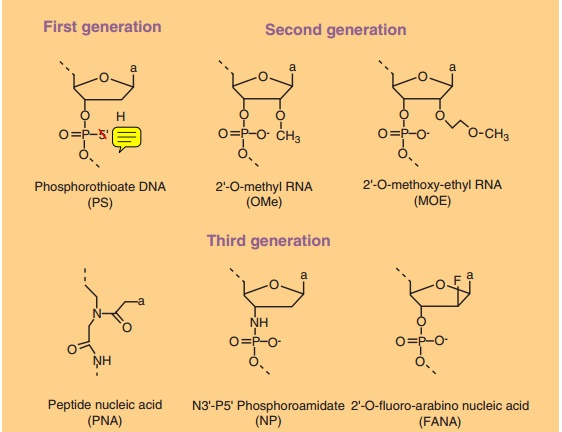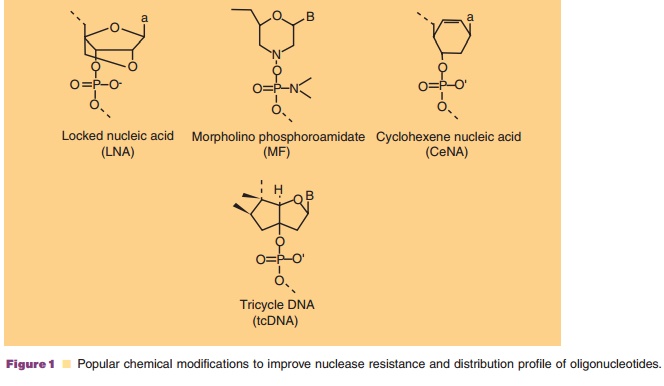Chapter: Pharmaceutical Biotechnology: Fundamentals and Applications : Oligonucleotides
Oligonucleotides
INTRODUCTION
Oligonucleotides (ONs) are (short) chains of (chemically modified)
ribo- or deoxyribonucleotides. Their ability to bind to chromosomal DNA or mRNA
through Watson–Crick and Hoogsteen base-pairing offers possibilities for highly
specific intervention in gene transcription, translation, repair, and
recombination for therapeutic applications. In theory, a sequence of 15 to 17
bases occurs only once in the human genome, which would allow specific
manipulation of single genes for ONs beyond this size range. In addition,
therapeutic effects of ONs can be obtained through sequence-specific binding of
transcription factors and intramolecular folding into complex three-dimensional
structures that can bind to and interfere with the function of biomolecules.
Finally, cells display specific receptors for ONs with associated immunological
responses that can be of therapeutic value.
Due to this multitude of possible effects of nucleic acids, ONs can be
very potent molecules, yet interpretation of the mechanism of therapeutic
action of a specific oligonucleotide sequence is not straight-forward (Stein et
al., 2005). Apart from the desired activity, ONs are inclined to display
(sequence-specific) unintended effects. Partial sequence homol-ogy may affect
expression of genes other than the targeted gene (known as off-target effects),
immune responses may be induced, and binding to proteins and peptides can alter
their activity.
sOther characteristics of ONs also impede clear-cut application as therapeutics.
Their physicochemical characteristics induce rapid uptake by macrophages and
excretion by the kidneys hindering target tissue accumulation. In addition,
spontaneous passage over cell membranes for intracellular applications is
difficult. Finally, ONs are sensitive to the action of nucleases leading to
their degradation. Over the years a number of different modifications have been
developed that overcome (part of) these problems (Fig. 1) (Kurreck, 2003). Many
of the clinically studied ONs contain one or more of these modified
nucleotides.


Related Topics